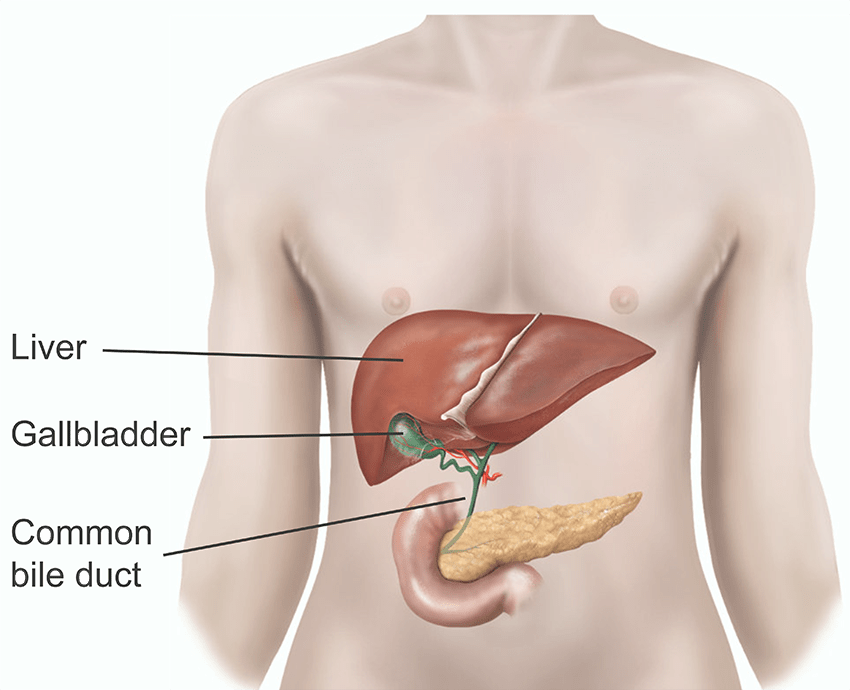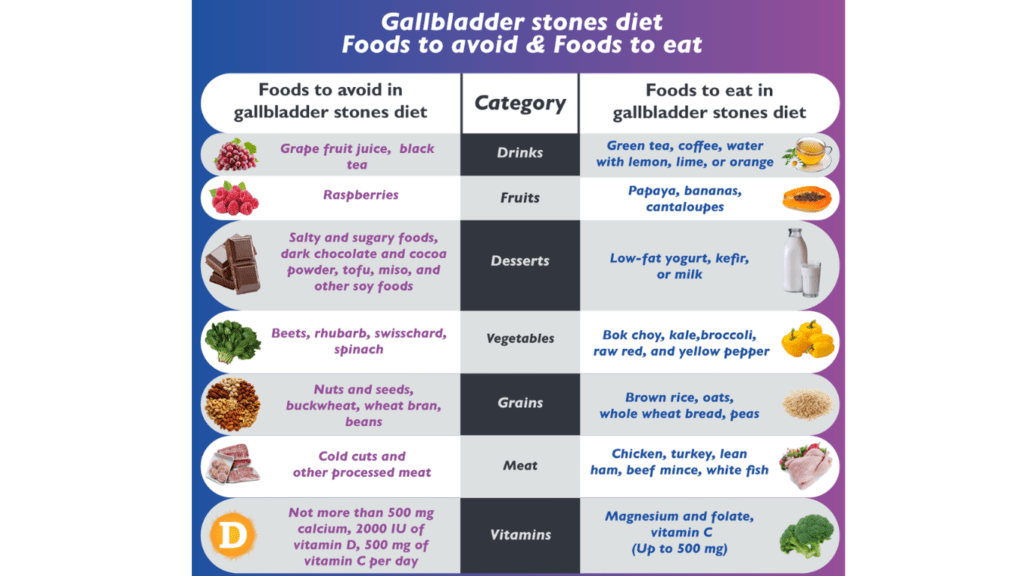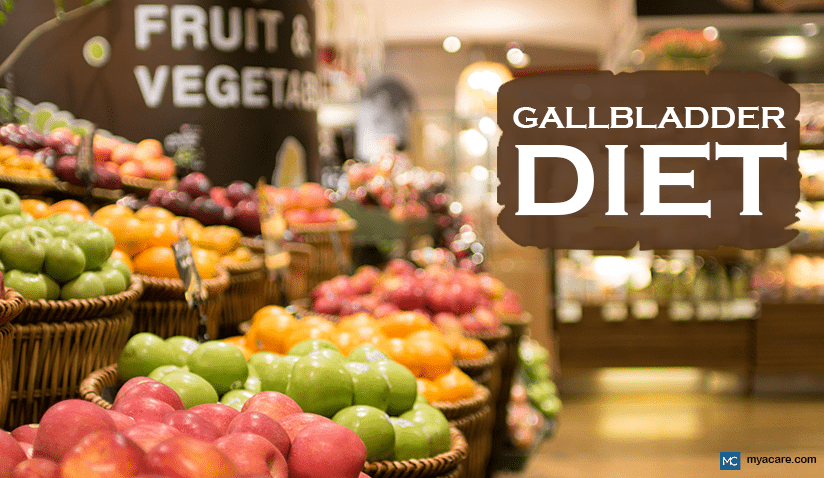The gallbladder is a small, pear-shaped organ located beneath the liver. Its primary function is to store bile, a digestive fluid produced by the liver. Bile helps in the digestion of fats, making the gallbladder crucial for efficient fat metabolism. This 7-day gallbladder diet menu is designed to support gallbladder health, reduce symptoms of gallstones, and promote overall digestive well-being.
Understanding the Gallbladder and Its Functions
The gallbladder is situated in the upper right quadrant of the abdomen, tucked beneath the liver. It connects to the liver and small intestine through a series of bile ducts, which are integral to the digestive process.
The gallbladder is part of the biliary system, which includes the liver and bile ducts. Bile stored in the gallbladder is released into the small intestine to aid in the digestion and absorption of fats and fat-soluble vitamins. This process is essential for maintaining healthy digestion and preventing fat malabsorption.
Why a Gallbladder Diet?
A gallbladder diet is vital for preventing and managing gallstones, which are hard deposits that can form in the gallbladder. These stones can cause significant pain and digestive issues. Adopting a specific diet can help reduce the risk of gallstones and support overall gallbladder health.

Overview of the 7-Day Gallbladder Diet Menu
Our 7-day gallbladder diet menu is designed to promote gallbladder health through balanced, nutritious meals that are easy to prepare. This plan focuses on low-fat, high-fiber foods that can help prevent the formation of gallstones and improve digestion.
Day 1: Monday
Breakfast:
- Oatmeal with fresh berries and a sprinkle of chia seeds
- Herbal tea (peppermint or chamomile)
Mid-Morning Snack:
- Apple slices with almond butter
Lunch:
- Quinoa salad with mixed greens, cucumber, tomatoes, and a lemon vinaigrette
- Grilled chicken breast
Afternoon Snack:
- Carrot sticks with hummus
Dinner:
- Baked salmon with steamed broccoli and sweet potato mash
Evening Snack:
- Pear slices
Day 2: Tuesday
Breakfast:
- Smoothie with spinach, banana, almond milk, and a scoop of protein powder
Mid-Morning Snack:
- A handful of mixed nuts
Lunch:
- Lentil soup with a side of mixed green salad
Afternoon Snack:
- Sliced bell peppers with guacamole
Dinner:
- Stir-fried tofu with mixed vegetables (bell peppers, zucchini, and snap peas) over brown rice
Evening Snack:
- A small bowl of blueberries
Day 3: Wednesday
Breakfast:
- Whole grain toast with avocado and a poached egg
Mid-Morning Snack:
- Greek yogurt with honey and granola
Lunch:
- Turkey and avocado wrap with a side of carrot sticks
Afternoon Snack:
- Sliced cucumber with tzatziki sauce
Dinner:
- Baked cod with quinoa and roasted asparagus
Evening Snack:
- A small serving of mango
Day 4: Thursday
Breakfast:
- Smoothie bowl with mixed berries, spinach, and a dollop of almond butter
Mid-Morning Snack:
- Orange slices
Lunch:
- Chickpea and vegetable curry with brown rice
Afternoon Snack:
- Celery sticks with peanut butter
Dinner:
- Grilled chicken salad with mixed greens, cherry tomatoes, and balsamic vinaigrette
Evening Snack:
- A small apple
Day 5: Friday
Breakfast:
- Scrambled eggs with spinach and tomatoes
Mid-Morning Snack:
- A handful of walnuts
Lunch:
- Tuna salad with whole grain crackers and a side of cucumber slices
Afternoon Snack:
- A small banana
Dinner:
- Baked chicken thighs with quinoa and steamed green beans
Evening Snack:
- Strawberries
Day 6: Saturday
Breakfast:
- Whole grain pancakes with a side of fresh berries
Mid-Morning Snack:
- A small handful of almonds
Lunch:
- Mixed greens salad with grilled shrimp and a lemon vinaigrette
Afternoon Snack:
- Bell pepper slices with hummus
Dinner:
- Turkey meatballs with whole wheat pasta and marinara sauce
Evening Snack:
- A peach
Day 7: Sunday
Breakfast:
- Smoothie with kale, pineapple, coconut water, and flaxseeds
Mid-Morning Snack:
- Mixed berries
Lunch:
- Black bean and corn salad with lime dressing
Afternoon Snack:
- Sliced apples with almond butter
Dinner:
- Grilled salmon with quinoa and steamed broccoli
Evening Snack:
- A small bowl of cherries

Food Items to Limit in a Gallstones Diet
High-Fat Foods
High-fat foods can trigger gallbladder attacks and should be limited. This includes fatty cuts of meat, full-fat dairy products, and fried foods.
Fried Foods
Fried foods are high in unhealthy fats and can exacerbate gallbladder issues. Avoid foods like french fries, fried chicken, and doughnuts.
Processed Foods
Processed foods often contain unhealthy fats and additives that can be hard on the gallbladder. Examples include packaged snacks, frozen meals, and fast food.
Sugary Foods and Drinks
Excess sugar can contribute to gallstone formation. Limit the intake of sugary foods like candies, pastries, and sugary beverages.
Dairy Products
Full-fat dairy products can be high in unhealthy fats. Opt for low-fat or non-dairy alternatives to support gallbladder health.
Food Items You Can Easily Consume in Gallstone Problem
High-Fiber Foods
Fiber helps to regulate digestion and prevent gallstone formation. Include foods like whole grains, fruits, vegetables, and legumes.
Lean Proteins
Lean proteins such as chicken, turkey, fish, and plant-based proteins are easier on the gallbladder. Avoid fatty cuts of meat and opt for grilling, baking, or steaming methods.
Fruits and Vegetables
A diet rich in fruits and vegetables provides essential nutrients and fiber. Aim for a variety of colors and types to ensure a range of vitamins and minerals.
Whole Grains
Whole grains like brown rice, quinoa, and whole-grain bread are excellent sources of fiber and should be included in a gallbladder-friendly diet.
Low-Fat Dairy Alternatives
Opt for low-fat or non-dairy alternatives like almond milk, soy yogurt, and low-fat cheese to avoid excess fats that can strain the gallbladder.
Do’s and Don’ts During Diet Plan of Gallstone
Do’s
Stay Hydrated
Drinking plenty of water aids digestion and helps to prevent gallstone formation. Aim for at least 8 glasses of water per day.
Eat Small, Frequent Meals
Eating smaller, more frequent meals can help manage gallbladder issues by reducing the digestive load at any one time.
Include Healthy Fats
Incorporate healthy fats like those found in avocados, nuts, seeds, and olive oil in moderation. These fats can support overall health without overstressing the gallbladder.
Don’ts
Avoid Large Meals
Large meals can cause the gallbladder to contract more forcefully, leading to discomfort or gallbladder attacks.
Don’t Skip Meals
Skipping meals can cause bile to build up in the gallbladder, increasing the risk of gallstone formation.
Avoid Rapid Weight Loss
Rapid weight loss can lead to an increased risk of gallstone formation. Aim for a gradual weight loss of 1-2 pounds per week if necessary.
By following this comprehensive 7-day gallbladder diet menu and adhering to the recommended dietary guidelines, you can support your gallbladder health, manage gallstone symptoms, and promote overall digestive well-being.
